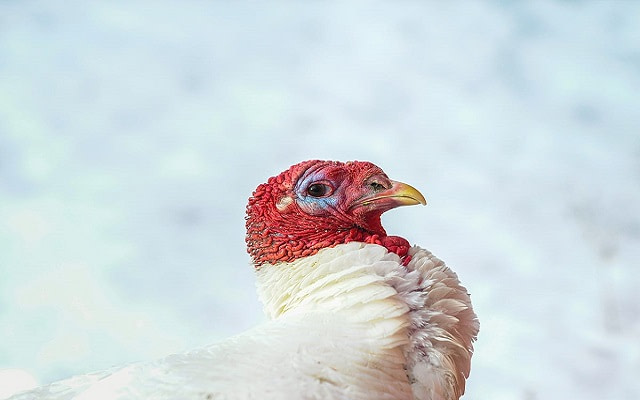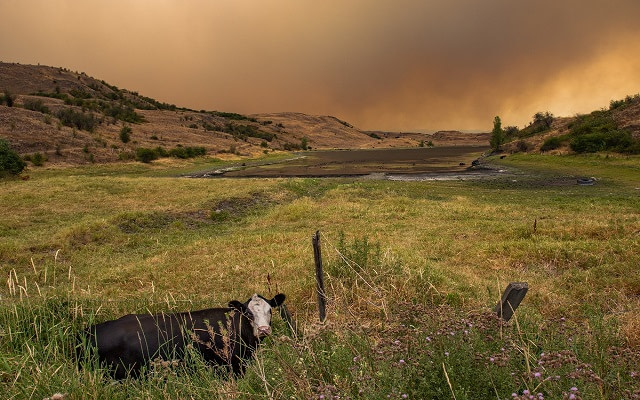Stock Photos & Video: The Future Of Food
We Animals Media recently returned from the US west coast, a part of the world that’s incubating big ideas and new technologies on how to help people transition away from animal proteins and feed the world. Here are just a few of the exciting advancements in plant based food and cellular agriculture that are tackling the challenges of the 21st century head on.
WildType: Reinventing Seafood
Wildtype is a food company based in the United States that is pioneering efforts in creating cellular-based salmon. Jo-Anne McArthur spent a morning photographing Wildtype’s product in the capable hands of a Michelin star chef.
“Demand for seafood and other animal protein has never been greater, while wild sources continue to dwindle. At the same time, our global population is on track to reach nearly 10 billion by the middle of this century. With so much new demand on our food supply, we need to create new tools to sustainably meet the environmental and food security challenges of our 21st century.” ― WildType
USA, 2021. Jo-Anne McArthur / We Animals Media
“I ate salmon. Real salmon, grown from cells in a lab. No animals were harmed. It’s really exciting to be able to help promote the future of food through photography. We want to help show how innovation and technology, as well as plant-based agriculture and delicious cooking, are changing the way we eat. How we eat will either help destroy or save the world.” ― Jo-Anne McArthur
Miyoko’s Creamery: Transforming the future of dairy
Miyoko Schinner is the founder of Rancho Compasión and Miyoko’s Creamery. A vegetarian since the age of twelve, and now a vegan, Schinner has dedicated her life to advocating for animals. One of the ways she does this is through her multi-million dollar company Miyoko’s Creamery, which creates plant-based cheeses and butter. Schinner’s company continues to attract millions of dollars in capital investments and recently won a lawsuit to maintain the right to refer to its products as “butter.”
USA, 2021. Jo-Anne McArthur / We Animals Media
“From our humble beginnings with four employees in Miyoko’s home kitchen, to a 30,000 sq ft. state-of-the-art facility in Sonoma, we’re leading the way in transforming the future of the creamery. We’re changing perceptions of vegan food, to inspire people from all walks of life to enjoy a phenomenally vegan lifestyle.” ― Miyoko’s
Find out more about Miyoko and her plant-based empire in this short film for our Unbound Project.
The Better Meat Co.: Harnessing the power of fermentation
As part of the We Animals Media “Future of Food” series, we spent an afternoon touring The Better Meat Co.’s (TBMC) fermentation facility and photographing the process of turning rhiza proteins – which are from fungi – into a healthful, nutrient-packed and tasty food.
“At The Better Meat Co., we harness the amazing power of fermentation to make delicious, versatile mycoprotein ingredients for food companies to use as the basis of their blended and fully animal-free meats.” ― The Better Meat Co.
USA, 2021. Jo-Anne McArthur / We Animals Media
TBMC provides a controlled, indoor farming process that maximizes efficiency while allowing nature to unfold. Producing the rhiza takes less than a day and uses far less land and water than animal proteins do. There is also less processing involved than other plant protein isolates typically used in plant-based meats.
TurtleTree: Where nutrition meets humanity
TurtleTree is an innovative and rapidly growing biotech company that uses proprietary, cell-based technology to create sustainable, nutritious and competitively priced meat and dairy products. By collecting cells from animals to then grow in laboratory settings, TurtleTree is able to create these foods without breeding, confining and killing animals.
As part of We Animals Media’s Future of Food series, Jo-Anne McArthur visited TurtleTree’s US team at their California lab, where she photographed them working on these projects and other exciting endeavors in the foodtech space.
USA, 2021. Jo-Anne McArthur / We Animals Media
“We envision a world where people, animals, and the planet no longer have to pay the price for the meals on our tables — a brighter future made possible by sustainable nutrition.” ― TurtleTree
Tofurky: America’s pioneering meat-free alternative
Tofurky was founded in 1980 by the teacher, naturalist, and self-described hippie, Seth Tibbott. It is a US-based company that pioneered the mass production of tempeh and then plant-based alternatives to animal proteins. We spent a day touring and filming the Tofurky facilities with Seth in Hood River, Oregon. The Tofurky building is LEED Platinum certified, making it one of the “greenest” buildings in the USA.
USA, 2021. Jo-Anne McArthur / We Animals Media
“Our products strike a cultural chord with a nation hungry for a tastier meat-free Thanksgiving. We’re so inspired by a world that is waking up to the benefits of tasty veg food.” ― Tofurky
Tofurky sells its products in 25 countries and remains a family-run business offering an alternative to the approximately 223 million Turkeys slaughtered for food each year.
Innovative food tech companies like these can provide a piece of the puzzle when it comes to tackling today’s food supply and demand challenges. In concert with other forms of advocacy, these solutions-focused initiatives are working to improve the food system for animals, people and the planet.
Help tell the stories of the future of food. Visit our Future of Food gallery for more visuals like these.
More like this from We Animals Media:
New Stock Photos & Video: Thanksgiving, Turkeys & Tofurky
by We Animals Media | Nov 22, 2021
IPCC Climate Change Report Is "Code Red" For All Animals
by We Animals Media | Aug 23, 2021
Investigation: Mediterranean Fishing - Greece, 2020
by We Animals Media | May 28, 2021



